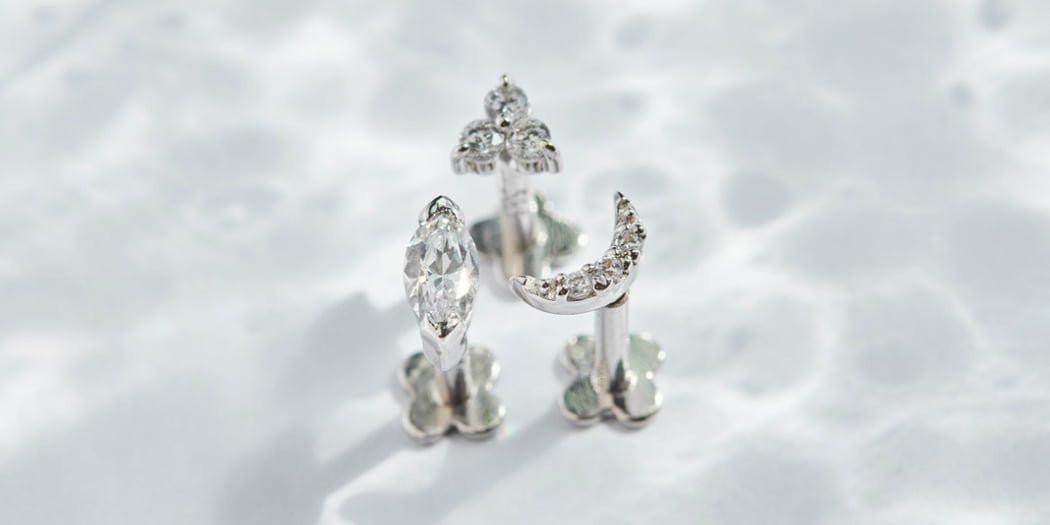Cubic zirconia is a man-made gemstone characterized by its high brilliance and versatility. It is available in a wide variety of colors, shapes, sizes, and cuts. This makes it one of the most popular stones in the jewelry industry. Furthermore, its similar appearance makes it a very popular imitation of diamonds. The name 'zirconia' comes from the zirconium oxide from which it is made.
overview
- Abbreviation CZ (Cubic Zirconia)
- artificial crystal
- Consists of zirconium oxide
- High purity: no inclusions
- Diamond optics
- Large variety of colors
- Mohs hardness 8-8.5
- Resistant to scratches
Story
Zirconium oxide (ZrO2) was discovered in 1892. In 1973, two scientists at the Lebedev Institute of Physics in Moscow produced zirconia crystals for the first time. They were originally looking for a crystal with special properties that would be suitable for laser technology. Since the late 1970s, the crystal has been used commercially in the jewelry industry for the first time.
Production
The artificial crystal consists of zirconium oxide, which stabilizes at a melting temperature of 2700°C and forms a cubic crystal structure.
During production, zirconium oxide powder is first heated and melted. An additive such as calcium or yttrium oxide is added as a stabilizer to ensure the cubic lattice retains its shape after cooling. The temperature is gradually reduced until the melt has cooled completely. The crystals grow under a protective shell and can then be further processed for jewelry making.
Cubic zirconia stones or diamonds?
How similar is a diamond to a zirconia stone? Is there a noticeable difference, and is the high price worth it? Here you'll learn the most important differences between the two gemstones.
optics
To visually resemble diamonds, zirconia stones are often brilliant-cut. Compared to diamonds , the two stones are very similar in their high brilliance. Therefore, laypeople cannot visually distinguish between diamonds and zirconia stones. Even experts cannot tell the difference with the naked eye. They can only distinguish them by light refraction or heat conduction.
Price
Because zirconia is a man-made crystal, it can be produced in unlimited quantities. The number of gemstones that occur only in nature is limited and therefore more expensive. Diamonds are a very rare gemstone and therefore have a correspondingly high price. One carat of diamond costs €4,000-6,000, depending on the clarity, while one carat of zirconia costs only a fraction of that, about €10. This makes zirconia a more affordable alternative.
hardness
The diamond is the hardest stone in existence, ranking at the very top of the Mohs hardness scale. The hardness of a diamond is 10 on the Mohs scale, while a zirconia stone, by comparison, falls between 8 and 8.5.
carat
The weight of a gemstone is measured in carats. One gram equals 0.2 carats. Cubic zirconia stones are slightly denser than diamonds and therefore heavier. This means that a zirconia stone and a diamond of the same carat weight are not the same size. A zirconia stone is slightly smaller than a diamond.
Zirconia in different colors
Zirconia stones are available in a wide variety of colors. They can even mimic the colors of certain gemstones. To achieve a particularly similar gemstone imitation, small defects such as cracks or inclusions can be artificially created. To create different shades, various metal oxides such as cesium, nickel, chromium, and calcium are added.
Zirconia as a gemstone
We exclusively sell earrings made of 14k gold, set with zirconia stones, so that we can offer our customers both practical and high-quality jewelry. The affordable price of zirconia also allows for elaborate designs with large stones. We believe this artificial crystal is the perfect imitation of diamonds due to its high radiance and hardness.

